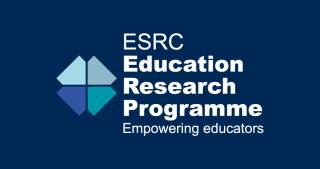Enhancing teacher agency with technology: Creating an ecological model through a place-based study of teaching.
Project description
Project Lead:
Professor John Gordon
Duration:
1/12/2022 – 30/11/2025 (36 months)
Organisation:
University of East Anglia
Research theme:
- the uses of technology in teaching and learning, in UK compulsory education
The four nation focus:
- UK and England
Project overview
- Aims
To understand the ecology of Edtech use in schools, this project will explore the motivations and interests of teachers when using technology in their professional lives and variations in teachers' use of technology according to their place of work, school phase and subject/area of specialism.
- Description
Place-based studies conducted in the county of Norfolk will generate a new ecological model of teacher agency with technology for teaching and learning that can inform UK education policy and frameworks for teacher education and development. Case study data will be used to build, test and refine an ecological model of agency in dialogue with researchers and teachers in other areas of the UK. Our model incorporates seven themes of technology use in teaching and learning, embedding these dimensions of: teachers' uses and design of technology; online safety and wellbeing; making (with) technology; digital global citizenship; digital information literacy; assessment; and teacher education and development.
- Project partners
- University of East Anglia Teacher Education Partnership
- Norfolk County Council Children’s Services
- Norfolk County Council Library and Information Service
- BT Applied Research, Adastral Park
- Partnership plans
We will facilitate new knowledge exchange partnerships between Education and Computing Sciences researchers, teachers and school leaders, the county council and technology partners, linking project activities and research with existing regional structures for teacher career development. Findings will inform education strategy in the region and its schools.
- Researchers
Researchers in UEA’s School of Education and Lifelong Learning:
- Prof John Gordon
- Dr Kristi Nourie
- Mrs Deirdre Medler (UEA Director of Initial Teacher Education)
- Dr Kimberley Bartholomew
- Dr James Craske
- Dr Harry Dyer
- Dr Simon Hammond
- Prof Bryan Maddox
- Dr Esther Priyadharshini
- Dr Kate Russell
Researchers in UEA’s UEA School of Computing Sciences:
- Dr Rudy Lapeer
- Mrs Helen Steward
- Prof Gerard Parr
- Dr Robert Blair
- Dr Jeanette Chin
 Close
Close




